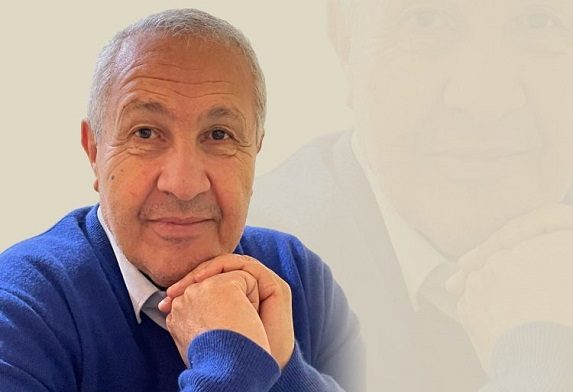Mauritania is preparing to experience new presidential elections on June 29. The poll heralds outgoing Mauritanian President Mohamed Ould Cheikh El Ghazouani as the favorite in a country that has escaped the political instability of its Sahel neighbors.
Mohamed Ould Cheikh El Ghazouani, who has been at the head of the country since 2019, announced that he is a candidate for a second term in the elections in a letter distributed to the media. He will face a crowd of rivals, but the outcome of the election seems already sealed.
“I thought it appropriate to address you, dear compatriots, directly through this letter, to inform you of my decision to introduce myself to you, so that you would renew your trust in me for the new mandate,” he said in his letter.
Ould Cheikh El Ghazouani, may also benefit from his current chairmanship of the African Union. He promised to strengthen national unity, improve the living conditions of the most vulnerable and guarantee security and stability in the country.
His party won a landslide victory in last year’s parliamentary elections, winning 107 seats out of 176, far ahead of the Islamist party National Assembly for Reform and Development, also known as Tewassoul, which won 11 seats.
The Islamist-inspired party also presented a candidate for this election in the form of Hamadi Ould Sid’ El Moctar. The party received legal status only in 2007 and has since become the leading opposition party in the Mauritanian parliament.
Tewassoul boycotted the 2014 presidential election and supported a candidate outside its ranks in the 2019 election.
The runner-up in the 2019 presidential election, Biram Ould Dah Ould Abeid, a human rights and anti-slavery activist, also announced his candidacy on the same day as the incumbent. We remind you that Mauritania completely and officially abolished slavery only in 1981.
I vote for Ould Dah Ould Abeid, whose political party is not authorized, in case of victory, is in a delicate situation. With a party without legal existence, this presents a problem for the electoral roll and undoubtedly a challenge for the Independent National Electoral Commission (CENI).
In March, Mauritania’s Ministry of the Interior began inclusive consultations with political actors and civil society to discuss ways to recognize political parties in view of the presidential elections in June.
According to the Ministry of Interior, twenty parties are currently recognized, and 98 requests for recognition have been submitted to the competent services. The Mauritanian authorities have clearly expressed their concern about the excessive number of parties that could complicate the electoral process.
Other political actors entered the presidential race although their chances are limited, such as Ba Mamadou Bocar, leader of the Alliance for Justice and Democracy/Movement for Reconciliation, a party represented in the National Assembly by 4 deputies, or even Hamidou Moctar Kane, a specialist in economic intelligence who is a Mauritanian who lived abroad.
Finally, the former president of Mauritania Mohamed Ould Abdel Aziz (2009-2019), who was sentenced to prison for misdemeanors and “embezzlement” during his term, also ran as a candidate, but the question of the legality of his candidacy is causing a serious debate among the country’s lawyers. This week, the courts refused his temporary release.
The participants called on all political parties, from the majority and the opposition, to play their role in preventing an election farce that should take place unilaterally.
Political opponents have recently warned of a “one-track” trend in the upcoming presidential election, calling on the change-hungry masses to mobilize against restrictions, including the systematic exclusion of young people from contributing to democratic change.
They further emphasized that the participants of the political process in its current form are responsible for the “destabilization and security that will befall the country”.
The elections in Mauritania, the first African country in terms of media freedom according to the latest Reporters Without Borders (RSF) report, should be a new opportunity to prove the democratic turn and stability of the country that was the stronghold of the State coup between 1978 and 2008 before the 2019 elections. which marked the first transition between two democratically elected presidents, between Ould Abdel Aziz and Ould Cheik El Ghazouani.
Mauritania remains a country caught between a rock and a hard place in a region with strong security pressures between North Africa and sub-Saharan Africa. The country is trying to counter the jihadist threat that has spread to the Sahel and has maintained perfect stability since 2011.


